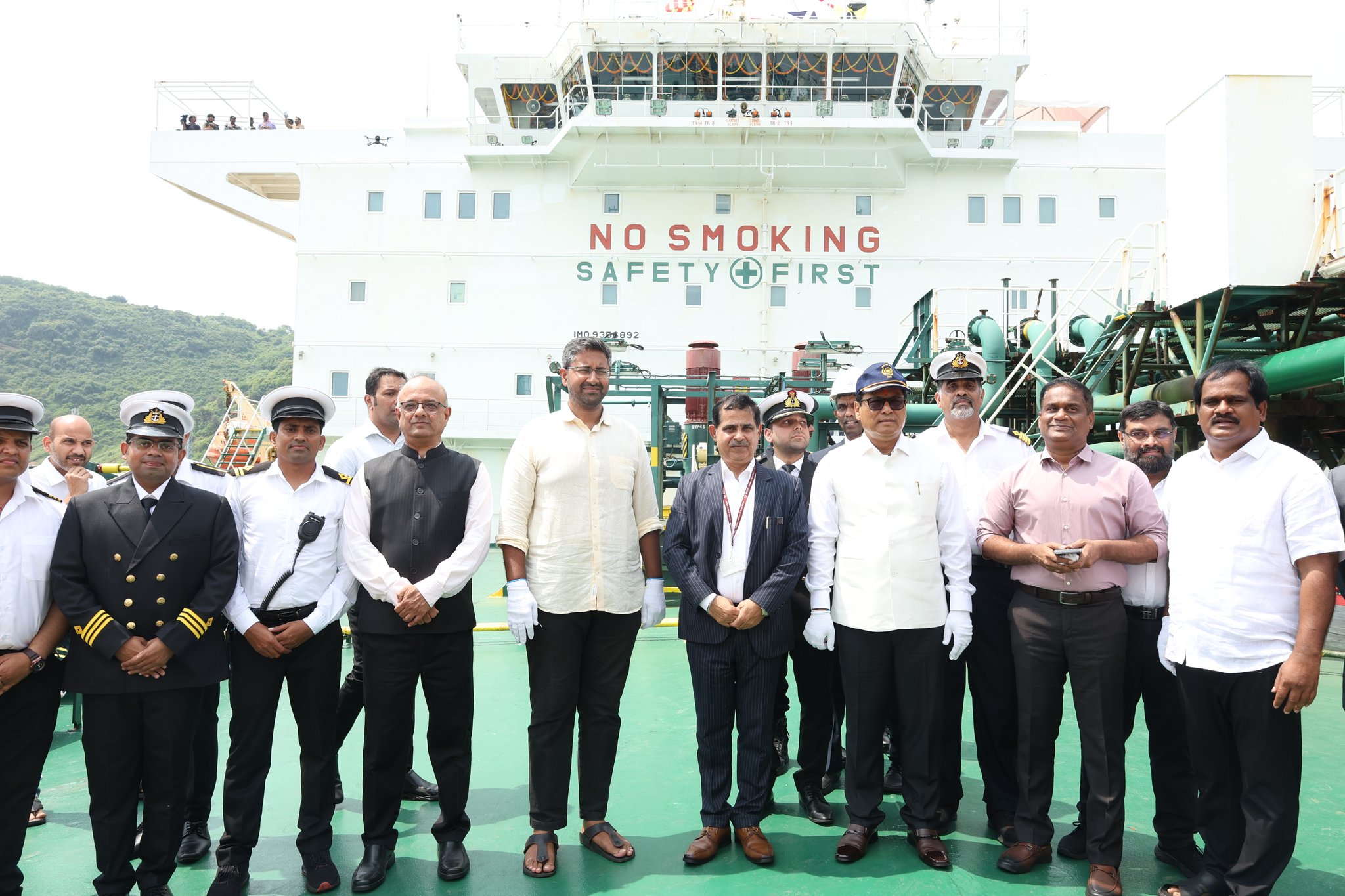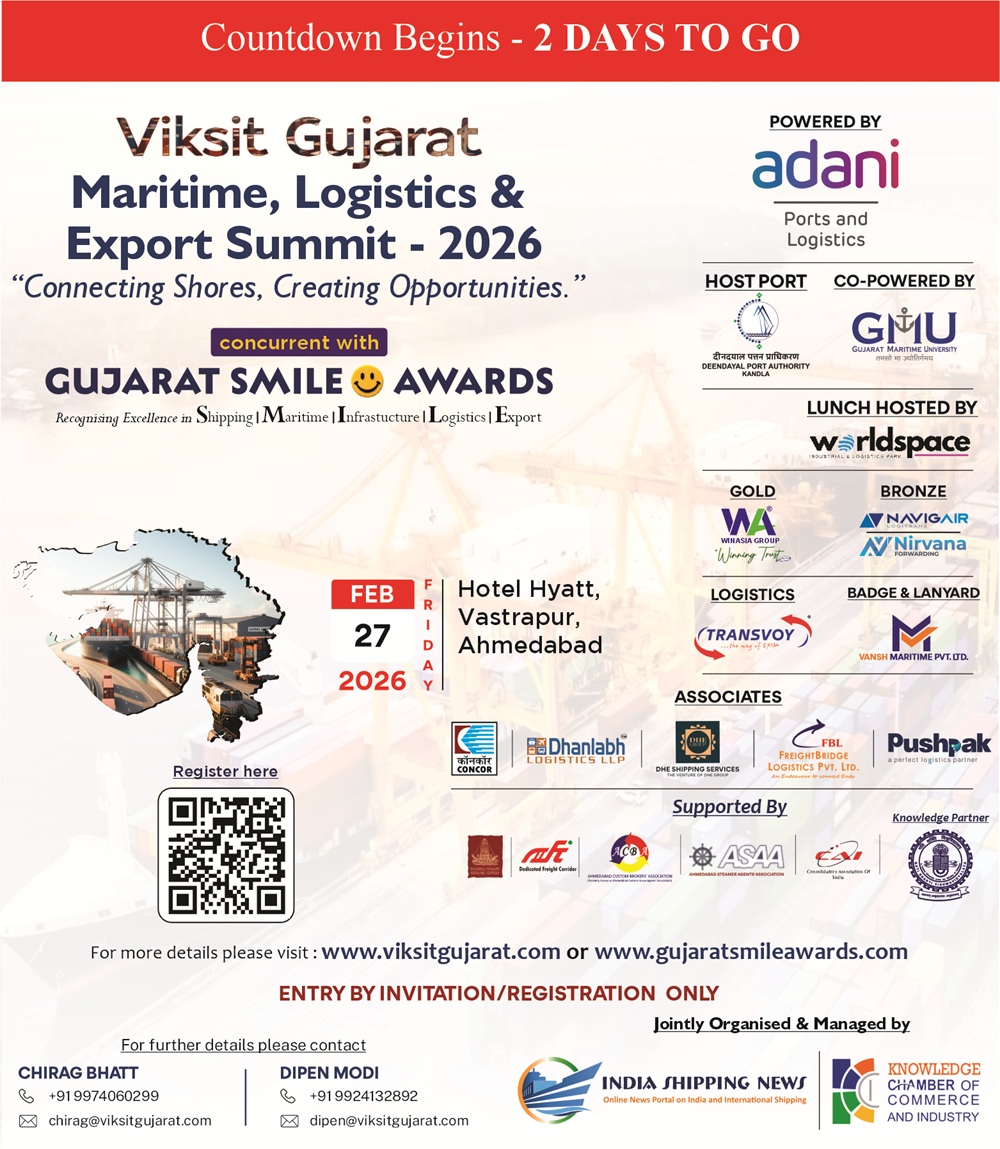
Oil PSU JVs to build 112 vessels, save $350 billion forex by 2047 : Sarbananda Sonowal
VISAKHAPATNAM : The Union Minister of Ports, Shipping and Waterways, Shri Sarbananda Sonowal outlined how the milestone aligns with the government’s larger strategy for maritime expansion and energy resilience. SCI’s ongoing collaborations with Oil and Steel PSUs, under the guidance of the Ministries of Ports, Shipping & Waterways (MoPSW) and Petroleum & Natural Gas (MoPNG), are paving the way for a new era of Indian-owned and Indian-flagged vessels.
“SCI is currently working with Oil PSUs to aggregate demand for 112 vessels and form a joint venture (JV) for long-term fleet augmentation. The initiative is expected to contribute to the nation’s efforts to save $75 billion (₹6 trillion) in foreign exchange paid annually towards freight charges to foreign shipping lines:” confirmed Shri Sarbananda Sonowal. Similarly, SCI’s partnership with Steel PSUs aims to strengthen the dry bulk segment, while its plan to establish the Bharat Container Shipping Line (BCSL) will boost India’s footprint in container shipping — enhancing EXIM efficiency and competitiveness.
“These initiatives not only reinforce India’s energy security and maritime capacity but also boost domestic shipbuilding, repair, and ancillary industries,” He added. “They will create high-quality employment and position India as a maritime power with resilience, innovation, and pride.
In addition, a Maritime Development Fund (MDF) worth ₹25,000 crore — comprising a ₹20,000 crore investment fund and a ₹5,000 crore interest incentivisation fund — has been established to enable long-term financing and strengthen the industry’s global competitiveness. The Shipbuilding Development Scheme (SbDS), with an outlay of ₹19,989 crore, aims to expand India’s domestic shipbuilding capacity to 4.5 million gross tonnage annually, boosting employment and skill development.
Shri Sonowal said these measures, coupled with infrastructure status for large vessels, customs duty exemptions for shipbuilding components, and reforms such as the extension of the tonnage tax regime to inland vessels, are “laying the foundation of a globally competitive maritime ecosystem.

